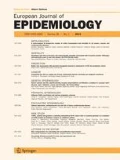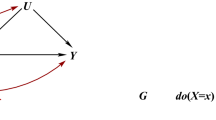Abstract
In recent years, epidemiologists have increasingly sought to employ genetic data to identify ‘causal’ relationships between exposures of interest and various endpoints – an instrumental variable approach sometimes termed Mendelian randomization. However, this approach is subject to all of the limitations of instrumental variable analysis and to several limitations specific to its genetic underpinnings, including confounding, weak instrument bias, pleiotropy, adaptation, and failure of replication. Although the approach enjoys some utility in testing the etiological role of discrete biochemical pathways, like folate metabolism, examples like that of alcohol consumption and cardiovascular disease demonstrate that it must be treated with all of the circumspection that should accompany all forms of observational epidemiology. Going forward, we urge the elimination of randomization or causality in reports of its use and suggest that Mendelian randomization instead be termed exactly what it is – genetic instrumental variable analysis.

Similar content being viewed by others
References
Holmes MV, Dale CE, Zuccolo L, et al. Association between alcohol and cardiovascular disease: Mendelian randomisation analysis based on individual participant data. BMJ. 2014;349:g4164. https://doi.org/10.1136/bmj.g4164.
Millwood IY, Walters RG, Mei XW, et al. Conventional and genetic evidence on alcohol and vascular disease aetiology: a prospective study of 500 000 men and women in China. Lancet. 2019;393(10183):1831–42. https://doi.org/10.1016/S0140-6736(18)31772-0.
Osier MV, Pakstis AJ, Soodyall H, et al. A global perspective on genetic variation at the ADH genes reveals unusual patterns of linkage disequilibrium and diversity. Am J Hum Genet. 2002;71(1):84–99.
Shen YC, Fan JH, Edenberg HJ, et al. Polymorphism of ADH and ALDH genes among four ethnic groups in China and effects upon the risk for alcoholism. Alcohol Clin Exp Res. 1997;21(7):1272–7.
Felitti VJ, Anda RF, Nordenberg D, et al. Relationship of childhood abuse and household dysfunction to many of the leading causes of death in adults. The Adverse Childhood Experiences (ACE) Study. Am J Prev Med. 1998;14(4):245–58.
Midanik L. Over-reports of recent alcohol consumption in a clinical population: a validity study. Drug Alcohol Depend. 1982;9(2):101–10.
Brien SE, Ronksley PE, Turner BJ, Mukamal KJ, Ghali WA. Effect of alcohol consumption on biological markers associated with risk of coronary heart disease: systematic review and meta-analysis of interventional studies. BMJ. 2011;342:d636. https://doi.org/10.1136/bmj.d636.
Bush K, Kivlahan DR, McDonell MB, Fihn SD, Bradley KA. The AUDIT alcohol consumption questions (AUDIT-C): an effective brief screening test for problem drinking. Ambulatory Care Quality Improvement Project (ACQUIP). Alcohol Use Disorders Identification Test. Arch Intern Med. 1998;158(16):1789–95.
Naimi TS, Brewer RD, Mokdad A, Denny C, Serdula MK, Marks JS. Binge drinking among US adults. JAMA. 2003;289(1):70–5.
Wood AM, Kaptoge S, Butterworth AS, et al. Risk thresholds for alcohol consumption: combined analysis of individual-participant data for 599 912 current drinkers in 83 prospective studies. Lancet. 2018;391(10129):1513–23. https://doi.org/10.1016/S0140-6736(18)30134-X.
Roerecke M, Rehm J. Irregular heavy drinking occasions and risk of ischemic heart disease: a systematic review and meta-analysis. Am J Epidemiol. 2010;171(6):633–44. https://doi.org/10.1093/aje/kwp451.
Ference BA, Ginsberg HN, Graham I, et al. Low-density lipoproteins cause atherosclerotic cardiovascular disease. 1. Evidence from genetic, epidemiologic, and clinical studies. A consensus statement from the European Atherosclerosis Society Consensus Panel. Eur Heart J. 2017;38(32):2459–72. https://doi.org/10.1093/eurheartj/ehx144.
Grucza RA, Sher KJ, Kerr WC, et al. Trends in adult alcohol use and binge drinking in the early 21st-century united states: a meta-analysis of 6 national survey series. Alcohol Clin Exp Res. 2018;42(10):1939–50. https://doi.org/10.1111/acer.13859.
Luczak SE, Wall TL, Shea SH, Byun SM, Carr LG. Binge drinking in Chinese, Korean, and White college students: genetic and ethnic group differences. Psychol Addict Behav. 2001;15(4):306–9.
Liu W, Redmond EM, Morrow D, Cullen JP. Differential effects of daily-moderate versus weekend-binge alcohol consumption on atherosclerotic plaque development in mice. Atherosclerosis. 2011;219(2):448–54. https://doi.org/10.1016/j.atherosclerosis.2011.08.034.
Goslawski M, Piano MR, Bian JT, Church EC, Szczurek M, Phillips SA. Binge drinking impairs vascular function in young adults. J Am Coll Cardiol. 2013;62(3):201–7. https://doi.org/10.1016/j.jacc.2013.03.049.
Takeuchi F, Yokota M, Yamamoto K, et al. Genome-wide association study of coronary artery disease in the Japanese. Eur J Hum Genet. 2012;20(3):333–40. https://doi.org/10.1038/ejhg.2011.184.
Lu X, Peloso GM, Liu DJ, et al. Exome chip meta-analysis identifies novel loci and East Asian-specific coding variants that contribute to lipid levels and coronary artery disease. Nat Genet. 2017;49(12):1722–30. https://doi.org/10.1038/ng.3978.
Han H, Wang H, Yin Z, Jiang H, Fang M, Han J. Association of genetic polymorphisms in ADH and ALDH2 with risk of coronary artery disease and myocardial infarction: a meta-analysis. Gene. 2013;526(2):134–41. https://doi.org/10.1016/j.gene.2013.05.002.
Klerk M, Verhoef P, Clarke R, Blom HJ, Kok FJ, Schouten EG. MTHFR 677C → T polymorphism and risk of coronary heart disease—a meta-analysis [Review]. JAMA. 2002;288(16):2023–31.
Lewis SJ, Ebrahim S, Davey Smith G. Meta-analysis of MTHFR 677C → T polymorphism and coronary heart disease: does totality of evidence support causal role for homocysteine and preventive potential of folate? BMJ. 2005;331(7524):1053. https://doi.org/10.1136/bmj.38611.658947.55.
Hsu CY, Chiu SW, Hong KS, et al. Folic acid in stroke prevention in countries without mandatory folic acid food fortification: a meta-analysis of randomized controlled trials. J Stroke. 2018;20(1):99–109. https://doi.org/10.5853/jos.2017.01522.
Toole JF, Malinow MR, Chambless LE, et al. Lowering homocysteine in patients with ischemic stroke to prevent recurrent stroke, myocardial infarction, and death: the Vitamin Intervention for Stroke Prevention (VISP) randomized controlled trial. JAMA. 2004;291(5):565–75. https://doi.org/10.1001/jama.291.5.565.
Acknowledgements
None.
Author information
Authors and Affiliations
Corresponding author
Additional information
Publisher's Note
Springer Nature remains neutral with regard to jurisdictional claims in published maps and institutional affiliations.
Rights and permissions
About this article
Cite this article
Mukamal, K.J., Stampfer, M.J. & Rimm, E.B. Genetic instrumental variable analysis: time to call mendelian randomization what it is. The example of alcohol and cardiovascular disease. Eur J Epidemiol 35, 93–97 (2020). https://doi.org/10.1007/s10654-019-00578-3
Received:
Accepted:
Published:
Issue Date:
DOI: https://doi.org/10.1007/s10654-019-00578-3




